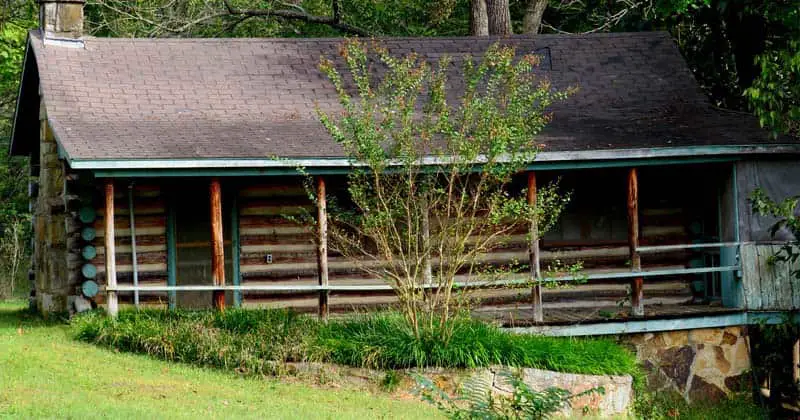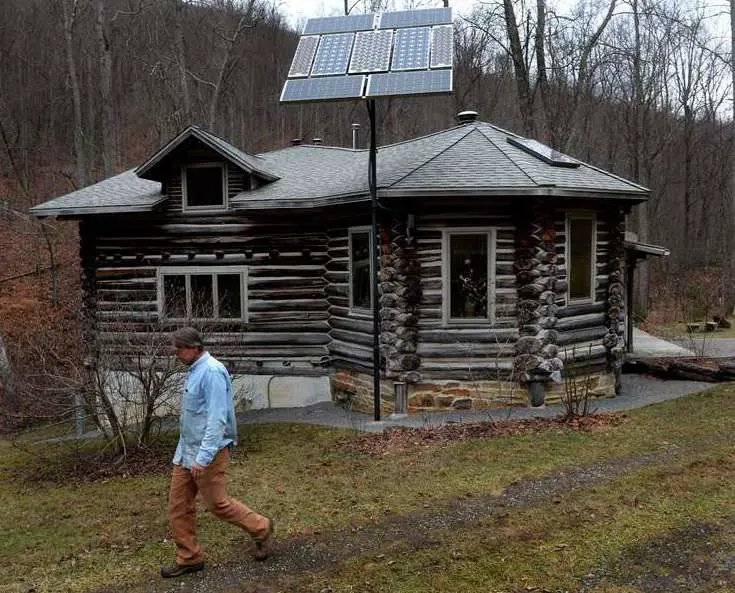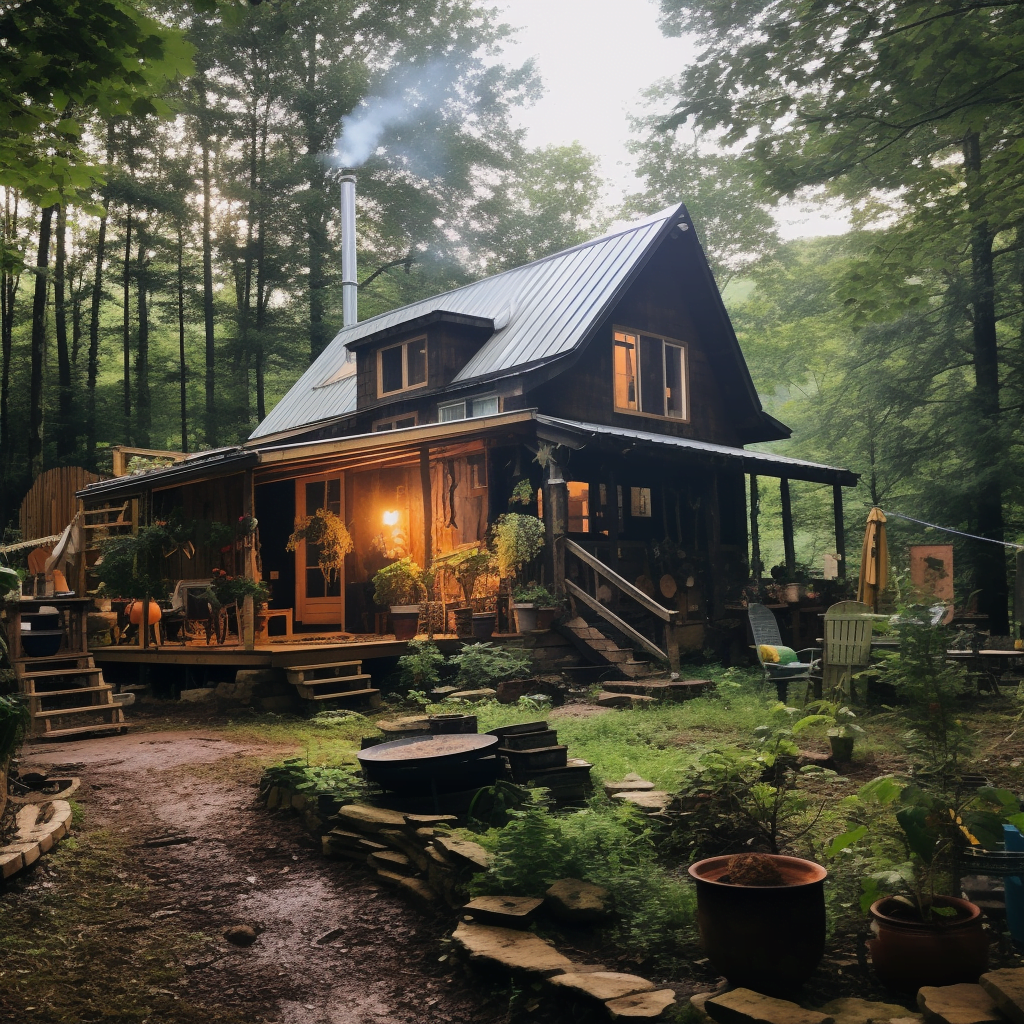Looking for a rural paradise to embark on a self-sufficient lifestyle? Look no further than West Virginia. With its abundance of rural areas and lower population density, this state provides the perfect setting for off-grid living. Not only is the cost of living significantly lower than the national average, but property prices and taxes are also more affordable. Although statewide incentives for renewable energy are lacking, federal tax credits can still be applied for. Moreover, West Virginia’s humid subtropical climate allows for the successful cultivation of various crops, including corn, soybeans, tobacco, wheat, hay, and an array of fruits and vegetables. Freshwater availability is abundant, with options for well-water or harvested rainwater storage. Embark on hunting and fishing adventures amidst diverse wildlife, but be prepared for the challenge of road maintenance, as potholes are a common issue. It is also crucial to consider West Virginia’s economic landscape, which has been significantly impacted by the decline in coal mining, resulting in an above-average unemployment rate. While the crime rate is generally lower than the national average, certain areas have higher rates. On top of it all, West Virginia faces a range of natural disasters such as hurricanes, tornadoes, earthquakes, floods, blizzards, and winter storms, so always be prepared. When planning to live off-grid in this scenic paradise, be sure to thoroughly research and comply with local regulations, building codes, and permit requirements.

Cost of Living and Property
In West Virginia, the cost of living is significantly lower than the national average. This makes it a suitable place for off-grid living, as it offers a more affordable lifestyle. Not only is the cost of living lower, but property prices are also cheaper compared to other states. This means that you can find more affordable options when it comes to purchasing land or a home.
Additionally, West Virginia has lower property taxes. This is beneficial for off-grid living as it means you can save money on property taxes, allowing you to allocate your funds towards other aspects of your off-grid lifestyle. Lower property taxes also make it more financially feasible to own land or property in West Virginia.
Renewable Energy Incentives
While there are no statewide incentives for renewable energy in West Virginia, there are still federal tax credits available. These federal tax credits can be applied for when you install renewable energy systems such as solar panels or wind turbines. These credits can help offset the upfront cost of installing renewable energy systems, making it more affordable and feasible for off-grid living.
It is important to research and understand the federal tax credits available for renewable energy in order to take full advantage of the incentives and maximize your savings when it comes to generating your own power off-grid in West Virginia.
Climate and Agriculture
West Virginia has a humid subtropical climate, with hot summers and cold winters. This climate can provide both advantages and challenges for off-grid living. The hot summers allow for ample sun exposure, which is beneficial for generating solar power. The cold winters, on the other hand, may require additional planning and preparation in terms of insulation and heating to ensure comfort and warmth in your off-grid home.
When it comes to agriculture, West Virginia offers a variety of crops that are suitable for off-grid living. Crops such as corn, soybeans, tobacco, wheat, hay, and various fruits and vegetables can be successfully grown in West Virginia. This means that you can grow your own food and have a sustainable source of nutrition while living off-grid.
Water Availability
One of the key considerations for off-grid living is water availability, and in West Virginia, freshwater availability is plentiful. This means that you will have access to a reliable source of water for various off-grid needs such as drinking, cooking, cleaning, and irrigation if you choose to have a garden.
In addition to traditional sources of water such as well-water, West Virginia also offers options for rainwater storage. Harvesting rainwater can be a sustainable and cost-effective way to collect and store water for off-grid use. It is a practice that embraces self-sufficiency and conservation, allowing you to minimize your reliance on external water sources.
Wildlife and Outdoor Activities
West Virginia is known for its diverse wildlife, making it an ideal location for those who enjoy outdoor activities. Living off-grid in West Virginia provides the opportunity to experience and appreciate the natural beauty and wildlife that the state has to offer.
Hunting and fishing are popular outdoor activities in West Virginia, and with the appropriate licenses, you can participate in these activities while living off-grid. This can allow for a sustainable way to source food directly from nature, further enhancing your off-grid lifestyle.
Road Maintenance
When living off-grid in West Virginia, it is important to be aware of the challenges associated with road maintenance. The state has a vast rural area, and maintaining roads can be a complex task, especially in remote locations. Potholes are a common issue, and it is important to have the necessary equipment and skills to deal with such road maintenance challenges.
It is advisable to have a reliable vehicle suitable for navigating the terrain and roads in West Virginia. Regular maintenance and inspection of your vehicle are essential to ensure that it remains in good condition and can withstand the rigors of off-grid living.

Unemployment and Economy
West Virginia has an above national average unemployment rate. This is an important consideration for off-grid living, as it may impact employment opportunities in the state. It is essential to carefully evaluate your financial situation and have a plan for generating income or sustaining yourself financially while living off-grid in West Virginia.
The decline in coal mining has had a significant impact on West Virginia’s economy. This decline has resulted in job losses and economic challenges for the state. It is important to be aware of these economic factors and consider them when planning your off-grid lifestyle in West Virginia.
Crime Rate
When it comes to the crime rate, West Virginia has a lower crime rate compared to the national average. This can be attributed to its lower population density and more rural areas. However, it is important to note that certain areas within the state may have higher crime rates. It is advisable to research and understand the specific crime rates of the areas you are considering for off-grid living in order to make an informed decision.
Taking appropriate security measures and precautions can help ensure your safety and the security of your off-grid property in West Virginia. This includes investing in alarm systems, secure locks, and maintaining good communication and relationships with your neighbors.

Natural Disasters
West Virginia experiences a range of natural disasters, including hurricanes, tornadoes, earthquakes, floods, blizzards, and winter storms. It is important to be prepared and have a plan in place to mitigate the potential risks associated with these natural disasters while living off-grid.
This includes ensuring your off-grid property is built to withstand such events, having appropriate emergency supplies and evacuation plans, and staying informed about weather conditions and warnings. It is also important to have contingency plans for alternative sources of power and resources in case of disruptions caused by natural disasters.
Compliance with Regulations
When living off-grid in West Virginia, it is crucial to research and comply with local regulations, building codes, and permit requirements. Off-grid living often involves alternative and innovative solutions that may not align with traditional regulations and codes.
Understanding and complying with these regulations not only ensures your safety and the safety of your property but also helps maintain positive relationships with local authorities and neighbors. It is important to seek guidance and clarification if needed and work with professionals who have experience navigating the regulatory landscape of West Virginia.
In conclusion, West Virginia offers a suitable environment for off-grid living with its lower cost of living, cheaper property prices, and lower property taxes. Despite the absence of statewide incentives, federal tax credits are available for renewable energy, which can help offset the cost of installing renewable energy systems. The state’s humid subtropical climate and diverse agriculture make it conducive to off-grid living and self-reliance. Plentiful freshwater availability and options for rainwater storage ensure a reliable water source. West Virginia’s wildlife and outdoor opportunities provide for hunting and fishing activities, complementing an off-grid lifestyle. However, road maintenance can be challenging, and it is essential to be aware of the higher unemployment rate and the impact of coal mining decline on the state’s economy. While West Virginia has a lower crime rate, it is crucial to consider certain areas with higher crime rates. The state’s susceptibility to a range of natural disasters necessitates preparedness and contingency plans. Researching and complying with local regulations, building codes, and permit requirements is fundamental to successful off-grid living in West Virginia.




